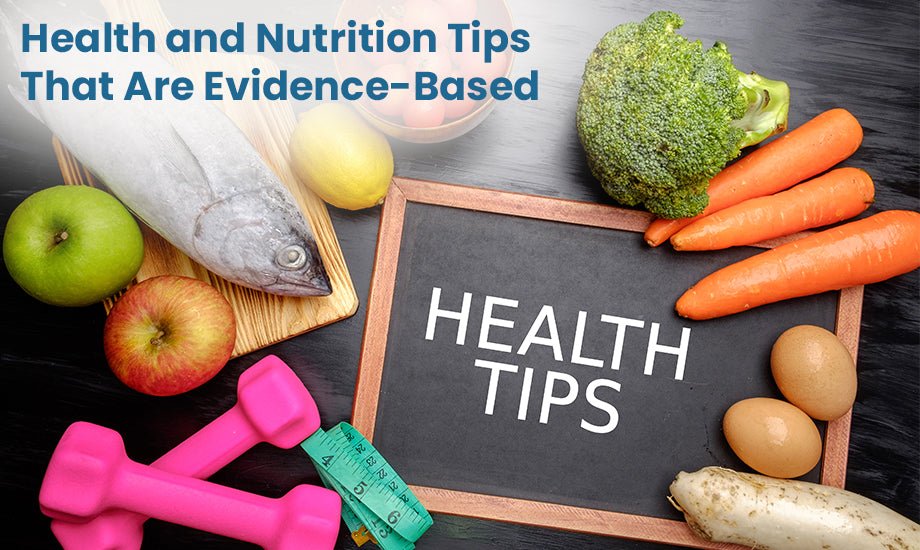
Health is wealth, and this adage is a proven fact. Good health is an important part of a person's overall well-being. It enables people to work, study, and enjoy life, and to contribute to their community.
How health and nutrition are correlated

Health and nutrition are two of the most important aspects of human life. Proper nutrition is essential for good health, as it provides the body with the necessary nutrients it needs to function properly. Good nutrition also helps to prevent many diseases and conditions, such as obesity, heart disease, diabetes, and cancer.
Nutrition is the process of consuming and utilising food to provide the body with energy and nutrients. Nutrients are substances that are essential for life and are found in food.
A good wellbeing is the result of a healthy lifestyle, which includes healthy eating habits, regular physical activity, and stress management. Health is also about preventing illness and disease, and maintaining a healthy weight.
Good nutrition is essential for good health. A healthy diet should include a variety of foods from the five food groups: fruits and vegetables, grains, proteins, dairy, and fats and oils. It should also include foods from all of the food groups in the correct proportions. Eating a balanced diet can help to ensure that you get all the nutrients you need for good health.
Macronutrients and Micronutrients
Nutrients are essential for maintaining health and well-being. They are necessary for the body to function properly and can help to prevent disease. Nutrients can be split into: macro and micronutrients. Macronutrients are those that are needed in large amounts such as carbohydrates, proteins, and fats. Micronutrients are those that are needed in smaller amounts such as vitamins and minerals.
Carbohydrates are a major source of energy for the body and provide fuel for the brain, muscles, and other organs. They can also help to regulate blood sugar levels and provide fiber, which helps with digestion and gut health.
Proteins are important for building and repairing body tissues, as well as producing hormones and enzymes. They are also needed for growth and development. Fats are important for providing energy and helping to absorb certain vitamins and minerals. They also help to maintain the structure of cell membranes.
Vitamins are needed for the body to produce energy, form bones and teeth, and regulate hormones. Different vitamins have different roles, so it is important to get enough of each one.
Minerals are important for the body to function properly by strengthening your bones to give the muscularity of performing various hard working tasks. Minerals produce enzymes and hormones.
20 foods to be avoided to stay healthy
Health and nutrition are closely linked, as the food that we consume has a direct impact on our overall health. Eating a balanced diet that is high in fruits and vegetables, whole grains, lean protein, and healthy fats can help to provide the body with all of the essential nutrients it needs to function properly. Inadequate nutrition can lead to a variety of health problems, including obesity, type 2 diabetes, heart disease, and even certain types of cancer. Conversely, making healthy food choices and maintaining a healthy weight can help to prevent and manage these conditions. Therefore, it is important to make sure that you are consuming a nutritionally balanced diet in order to support your overall health.
While natural foods are beneficial for our health and are packed with nutrients, avoiding processed foods is to be recommended for better health and hygiene.
The criteria of foods which we should avoid are as follows:

Fried foods - Eating fried food has been linked to adverse health effects, such as weight gain, insulin resistance, and increased risk of death from cardiovascular disease. Fried foods are high in calories and saturated fat, which can lead to weight gain. Fried foods are also high in trans-fat, which increases the risk of developing heart disease. Eating fried foods can also lead to insulin resistance, which can increase the risk of type 2 diabetes. Additionally, fried foods can contain high levels of advanced glycation end products (AGEs), which can contribute to inflammation and chronic disease.
Processed meats - Processed food can have a negative effect on health. These foods typically contain high amounts of sodium, sugar, and unhealthy fats, which can contribute to a range of health problems. Eating too many processed foods can lead to an increased risk of obesity, heart disease, type 2 diabetes, and other chronic health conditions. Processed foods can also contain artificial ingredients, trans fats, and preservatives, which can have adverse effects on health. Additionally, they often lack important vitamins and minerals, which are needed for optimal health.
Refined grains- Refined grains can negatively affect health due to their lack of dietary fibre, vitamins and minerals. Refined grains are often found in processed foods such as white bread, white rice, and white pasta. These foods can cause a spike in blood sugar levels and can increase the risk of type 2 diabetes, heart disease, and obesity. Refined grains can also cause inflammation in the body, which has been linked to a variety of chronic diseases.
Sugary drinks- Sugary drinks can have a serious impact on health. They contain large amounts of added sugar, which can lead to weight gain, tooth decay, and an increased risk of diabetes, heart disease, and other chronic health conditions. Sugary drinks are also often high in calories, which can contribute to weight gain, and they can replace more nutritious foods in the diet. Furthermore, drinking too much sugar can lead to an imbalance of hormones, which can increase appetite and cravings for unhealthy foods. Therefore, limiting sugary drinks can be an important part of maintaining a healthy lifestyle.

White bread- White bread is often seen as a less healthy option compared to other types of bread because it is made from refined wheat, which has been stripped of many essential nutrients. Consuming white bread can lead to a higher intake of sugar, sodium, and unhealthy fats. Eating white bread regularly can also increase your risk of developing chronic diseases, such as type 2 diabetes, heart disease, and obesity. Additionally, because it is low in fibre, it may not provide adequate satiety, which can lead to overeating. For these reasons, it is best to limit your intake of white bread and instead choose more nutrient-dense options.
Excessive caffeine- Excessive caffeine consumption can have a range of adverse effects on your health. Consuming too much caffeine can lead to jitteriness, anxiety, heart palpitations, headaches, insomnia, and dehydration. Long-term use of caffeine can also lead to increased blood pressure, increased risk of osteoporosis, and increased risk of certain types of cancer. Caffeine can also interfere with the absorption of certain vitamins and minerals, and can also increase your risk of developing type 2 diabetes. For these reasons, it is important to be mindful of your caffeine consumption and to limit your intake to moderate amounts.
High-sodium foods- High-sodium foods can have a detrimental effect on health, as they can lead to high blood pressure, heart disease, stroke, and other health problems. Over time, consuming too much sodium can cause fluid retention, which can lead to swelling in the hands, ankles, and feet. In addition, high-sodium diets can also increase the risk of developing certain types of cancer. Finally, high-sodium diets can also cause dehydration and electrolyte imbalances, as well as an increased risk of developing kidney stones.
Excessive alcohol consumption- Excessive alcohol consumption can have a variety of negative effects on health. It increases the risk of liver damage, high blood pressure, stroke, heart disease, certain cancers, and mental health issues. It can also increase the risk of unintentional injuries such as car accidents, falls, and drowning. Additionally, it can lead to alcohol dependence and addiction, which can have even more serious health consequences.
High-fat dairy products- High fat dairy products can be part of a healthy diet, but they can also have an adverse effect on health if consumed in excess. Eating too much high fat dairy can increase the risk of heart disease, stroke, and type 2 diabetes. High fat dairy products are also linked to an increased risk of certain types of cancer, such as colorectal and breast cancer. In addition, high fat dairy products are high in calories and can contribute to weight gain and obesity if consumed in excess. Eating high fat dairy products in moderation is recommended, instead opting for low fat or fat free varieties.
Refined sugars- Excessive consumption of refined sugar can have a detrimental effect on health. It can lead to weight gain, diabetes, heart disease, and other chronic health conditions. It can also cause inflammation, which can worsen existing health conditions such as arthritis and asthma. Additionally, refined sugar can interfere with the absorption of essential nutrients, leading to vitamin and mineral deficiencies. Furthermore, it can cause an imbalance in the body's natural hormones, which can lead to fatigue, mood swings, and other symptoms.
Trans fats- Trans fat, also known as trans fatty acids, are a type of unsaturated fat found mostly in processed foods. They are created during a process called hydrogenation, which adds hydrogen atoms to vegetable oils to make them more solid. Trans fat can increase levels of bad cholesterol in the blood and decrease levels of good cholesterol. This can lead to an increased risk of heart disease, stroke, and type 2 diabetes. Trans fat can also increase inflammation in the body, which has been linked to various chronic diseases. Eating a diet high in trans fat can also contribute to weight gain. Therefore, it is important to limit or avoid trans fat in order to maintain optimal health.
Processed snacks- Processed snacks can have a negative effect on health because they are typically high in calories, sugar, fat, and sodium. They also contain unhealthy ingredients such as preservatives, artificial flavors and colors, and trans fats. Eating processed snacks on a regular basis can result in weight gain, as well as an increased risk of developing diabetes, heart disease, and other health problems. Furthermore, these snacks generally lack any significant amount of vitamins and minerals, making them a poor choice for those looking to get the necessary nutrients for a healthy lifestyle.
High-calorie snacks- High calorie snacks can have a significant negative effect on health. Eating high calorie snacks on a regular basis can lead to weight gain and obesity, which can increase the risk for a variety of chronic diseases, including heart disease, stroke, and type 2 diabetes. Eating large amounts of high-calorie snacks can also lead to other health problems, such as high cholesterol, high blood pressure, and certain types of cancer. Moreover, eating high-calorie snacks can cause a person to become accustomed to eating more food than they need, which can lead to overeating and further weight gain.
Artificial sweeteners- Artificial sweeteners are widely used in many foods and drinks, and may have an effect on health. They are generally considered to be safe, but there is some evidence that they may have adverse effects in some people, such as increased risk of developing certain types of cancer and metabolic syndrome. Additionally, some artificial sweeteners may affect the body's ability to regulate blood sugar levels, and can cause digestive issues. For these reasons, it is important to talk to your doctor before using artificial sweeteners.

Red meat- Eating red meat has been linked to a range of health problems, including heart disease, stroke, and certain types of cancer. Red meat contains high levels of cholesterol and saturated fat, which can increase the risk of cardiovascular disease. The World Health Organization (WHO) classifies processed meats, such as bacon, sausage, and hot dogs, as carcinogenic (cancer-causing). Other research suggests that eating red meat can increase the risk of inflammation and insulin resistance, which can lead to type 2 diabetes. Eating too much red meat can also contribute to obesity and high blood pressure.
High-fat processed meats- High fat processed meats can have a negative impact on health. Eating too much of these meats can increase a person's risk of developing heart disease, diabetes, and even certain types of cancer. High-fat processed meats are also high in sodium and saturated fat, both of which can increase blood pressure and the risk of stroke. Eating processed meats can also lead to weight gain and obesity, which can further increase the risk of developing chronic health conditions.
Fast food- Eating fast food regularly can have a negative effect on health. Fast food is typically high in calories, sugar, salt, fat and refined carbohydrates, which can lead to weight gain, high blood pressure and an increased risk of developing diabetes and heart disease. Eating too much fast food can also contribute to nutrient deficiencies, as it is often low in essential vitamins and minerals. Furthermore, many fast food items contain trans fats, which can increase the risk of stroke, heart disease, and other chronic conditions. Over consumption of fast food can also lead to an increased risk of depression and anxiety.
Too much salt- Eating too much salt can lead to many health problems. It can cause high blood pressure, which can increase the risk of heart attack, stroke, and other cardiovascular diseases. Too much salt can also cause fluid retention, which can lead to swelling in the hands, feet, and ankles. It can also worsen conditions such as asthma and kidney disease. Eating too much salt can also cause an electrolyte imbalance, which can lead to dehydration and fatigue. Finally, consuming too much salt can increase the risk of stomach cancer.

Soft drinks- Soft drinks have been linked to a range of health issues, from dental cavities to obesity. The high sugar content in many soft drinks has been linked to an increased risk of obesity, diabetes, and heart disease. Soft drinks have also been linked to an increased risk of developing kidney stones. Additionally, the artificial sweeteners used in some diet soft drinks have been linked to an increased risk of cancer.
Refined oils- Refined oil can have a beneficial effect on health when consumed in moderation. Refined oils contain fewer impurities, which can reduce the risk of trans-fats and other unhealthy components. Refined oils are also higher in polyunsaturated and monounsaturated fats, which are considered to be healthier fats than saturated fats. They are also higher in Omega-3 fatty acids, which can help reduce inflammation and promote heart health. Finally, refined oils can also help reduce cholesterol levels, which can help reduce your risk of heart disease.
Our health is the conscience of our existence. Keeping a nutrients based meal can longer your life and can save you from jitters. Basic nutrients are available in raw food. A healthy nutritional diet can keep you alive without the pain of visiting your doctor every once in a while.












